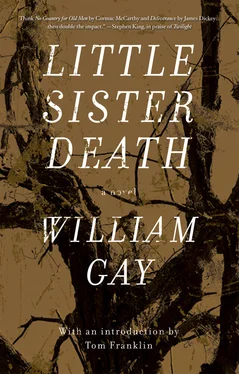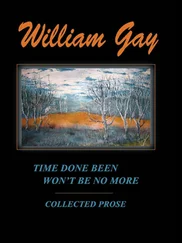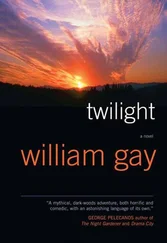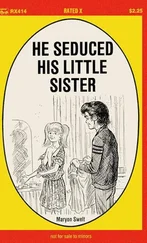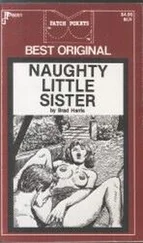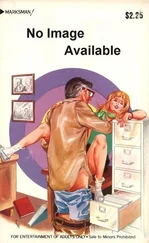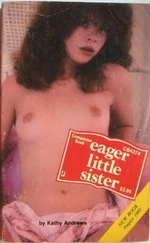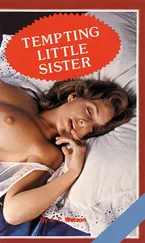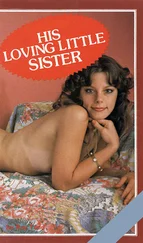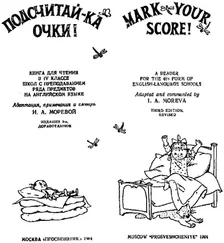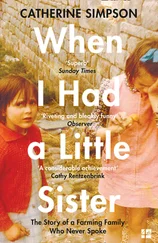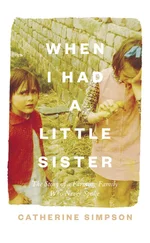Saturday morning he would begin as if freed from a forty-hour workweek and continue through the day and night until exhaustion forced him to cease, giving up the notebook or typewriter with visible reluctance.
Even then he was still working. He would be wound too tight, distant and vague, his mind numb, she thought, as he glanced occasionally at her in a curious, speculative manner that disturbed her, as if wondering who she was, how she fitted into the scheme of things. If she spoke to him he would answer her cordially enough, but he didn’t volunteer anything. He’d just sit on the end of the sofa, legs crossed, a cigarette burning unattended in his fingers, his eyes heavylidded, inwardlooking. His mind, she guessed, still filled with the people that were realer to him than she could ever be. Even though she always read his work, the simple reading of it did not carry her where he had been.
And the worst part of it was that she had thought this book was to be different; in the writing of his other two novels he had been dealing with real people in life-and-death situations, concerned with tying together the disparate threads of his characters’ lives, almost unable to let them go. Now he was supposed to be knocking off a ghost story for the money and forgetting it, taking a little time off then getting on to more serious things. Secretly she had thought that was the idea that he just let be, she thought he had the ability that this would squander. They should have just tightened their belts and made do, they could have made it until the second book was made publishable, been more thrifty with the little money they got and not spent what they had on a ruined backwoods mansion.
Sunday afternoon was more of the same, hot and clear and a mile long. The steady clack clack clack of the typewriter ceasing only when he paused to light a cigarette, make coffee, go to the bathroom. She was counting the days till Labor Day.
She wished she had brought gardening tools. The yard was flanked with tall brick flowerbeds, she guessed all that was left of the sisters Abernathy. There were peonies, bloodred cannas, others she didn’t even recognize, all of them strangling in weeds and crabgrass.
She began to pull weeds, turning their roots to die in the sun, planning on next Saturday already and it only being Sunday: fertilizer and small hoe, a trowel to loosen the earth about the flowers. Maybe he’d go before Saturday. Maybe they’d run out of something.
The earth was parched and hard, solid as clay baked in the sun. The stick she prodded it with broke and she pitched it aside and arose, wiping her hands on her shorts.
She turned. The toolshed. There would be something, even if it was only a sharp piece of steel. She could loosen the soil and water the cannas; it was better than Sunday evening TV.
Serried gloom within, slats of white sunlight where the shakes were missing from the roof. She stood for a moment, letting her eyes adjust to the shadows. Oddments of unidentifiable junk, scrapiron, old broken purposeless tools took shape out of the plasmic shade.
It was hot in the shed, the air still and lifeless, freighted with nearinvisible motes of dust turning like spinning points of light. The smell of hot wood baking in the sun, the dank odor of moldy earth. Slow sleepy drone of insect wings. She looked up. Above the door wasps were flying about an enormous gray paper nest, arriving, departing, involved in some commerce known only to themselves, ugly red wasps thick as her little finger. She looked away, glanced about for anything that looked as if it would serve her purpose.
A wooden platform covered half the earth floor, as if, she thought, the toolshed had once been floored and then part of it had been ripped up. The wooden bins, she figured, had held foodstuffs, perhaps potatoes, bags of dried beans. Against the wall, amidst a motley of thrownaway clothes, stood a hoe.
She took up the hoehandle as she stepped on what a cursory glance had told her was a string of gaudy rag. It erupted to life, a copperhead flowing smooth as oil past her feet, across the worn floorboards, vanishing somewhere beneath them onto the blackgreen loam.
She screamed and whirled about with the hoe, running blindly for the door, for daylight, the hoehandle striking the back sides of the doorjamb, momentarily stopping her, and the wasps were instantly upon her. She dropped the hoe, stood in the doorway slapping wildly at her face.
She was still screaming. They were in her hair, down the neck of her blouse, she could feel them crawling over her breasts, stinging her face. She ran blindly into the yard.
She could hear running footsteps. He grabbed her, slapping at the wasps. Goddamn it to hell, he said. He grasped her skull roughly with both hands hard, moving them over her hair, she could feel his hands crushing the wasps on her scalp. He jerked her blouse off, beat at her breasts and shoulders, caught her in his arms, turned her wildeyed face up momentarily toward his own.
Where’d they sting you?
All over, she said, crying brokenly. My face, my breasts. Is that all of them?
I think so.
Then get the hell in the house.
She washed with cold water and coated her face with calamine lotion. She had taken most of the stings on her face and she could already feel it swelling. Her eyes seemed to be disappearing, her vision diminishing as if she peered through slits, knifeholes stabbed in the bloated flesh of her face.
Where were you?
Where was I? I was typing. Where did you think I was?
You could have come when I screamed. A damned copperhead practically ran over my foot and you were typing. I could have been bitten. I could be dead by now, and you would be typing.
I came when I heard you.
Sure. When you finished the paragraph. Or the page.
Goddamn it, Corrie, I came when I heard you. How did I know where you were? You know better than to be in that hot toolshed. What were you doing in there anyway? I thought you were on the porch.
You’re never around when I need you. She began to cry.
You know that’s not fair, Corrie.
It’s the truth. I don’t give a damn anymore what’s fair and what’s not.
She lay in the darkness, her eyes swathed in artificial darkness of cold wet bandages, listening to him typing. She wondered what time it was, if he would cook her supper or insist on her doing it. Or more likely, just do without.
After a while the typing ceased. The door opened.
Corrie, you want some tomato soup?
No.
What do you want?
Nothing. I want to be let alone. I don’t want you looking at me.
Before her eyes swelled closed, she had looked with horror at herself: a bloated nightmare in the bathroom mirror, tiny dark eyes like bits of coal sinking in the softwhite suet of her face, tiny nose and curious kewpie mouth stuck onto an enormous balloon being inflated as she watched.
You want to go to the doctor?
I don’t know. Do you think it could hurt the baby?
No.
After a while he went out. The door closed. The typing resumed. She lay listening to the whir of the air conditioner.
When she awoke, her eyes were not as swollen. She could see a little. Night had fallen beyond the window.
She wasn’t sure what woke her until she heard it again. A knock on the other side of the wall.
David?
No answer. She waited. It came again, a hard preemptory knock such as something hard striking the paneled wall. A knock again, a sound of something falling against the wall and slithering down it.
Oh, Jesus. A walking stick, she thought, sick at heart, thinking about her father. She got up, opened the door. David? she called. The typing had ceased. It must be late. David? She went through the foyer, her vision still impaired, everything dark and blurry. She went onto the porch. Cool night air on her hot swollen face — she could smell cigarette smoke, hear the creek running.
Читать дальше
